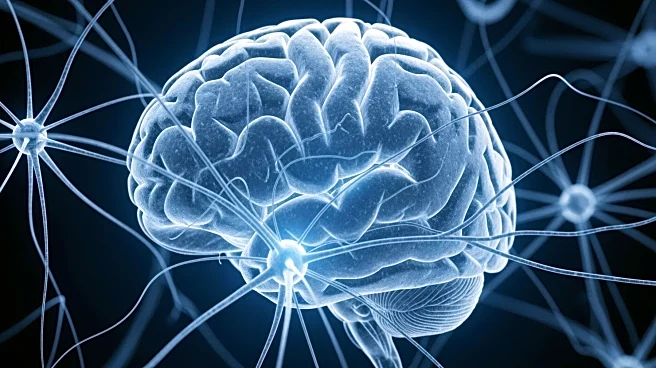What's Happening?
A study from the University of California at Los Angeles has developed a novel mouse model to study vascular dementia (VaD), identifying dysregulated intercellular signaling targets associated with white matter injury. The research highlights two key
signaling pathways, Serpine2-Lrp1 and CD39-A3AR, as potential therapeutic targets. These findings could lead to new biomarkers and treatments for VaD.
Why It's Important?
Vascular dementia is a significant health concern, and understanding its mechanisms is crucial for developing effective treatments. The identification of specific signaling pathways offers new avenues for therapeutic intervention, potentially improving outcomes for patients with VaD. This research could pave the way for more targeted and effective treatments, reducing the burden of dementia on individuals and healthcare systems.














